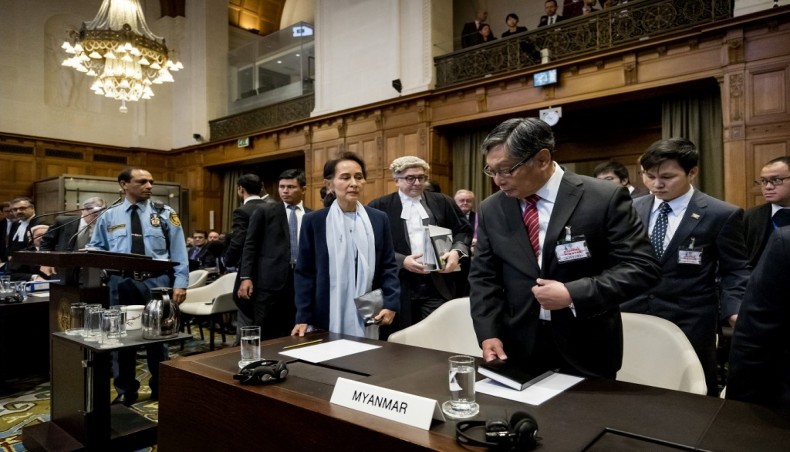Two Rohingya women killed in Myanmar shelling
Two Rohingya women were killed and seven others injured in shelling the Myanmar military and insurgents blamed on each other, days after the UN's top court ordered the country to protect the beleaguered Muslim minority.
Military spokesperson Zaw Min Tun told AFP that one woman was killed on the spot by ‘heavy weapons’ while another died after arriving at hospital in conflict-torn northern Rakhine state.
He blamed the deaths on incursions by the Arakan Army, rebels fighting for more autonomy for ethnic Rakhine Buddhists in the same area where the Rohingya crisis unfolded.
But a spokesperson for the Arakan Army said there had been no fighting with the military in that area and they are ‘accusing and faking it’.
The conflict has seen scores of civilians killed, hundreds wounded and some 100,000 displaced in the past year.
Earlier this month four Rohingya children were killed and five others injured alongside their teacher after an explosion hit while they collected firewood.
Northern Rakhine was the site of a violent military campaign in 2017 that drove some 740,000 Rohingya into Bangladesh and prompted allegations of genocide.
Hundreds of thousands still live in Rakhine in what rights groups have called apartheid-like conditions.
In a rare legal decision for the persecuted minority, the International Court of Justice ruled Thursday that Myanmar had to ‘take all measures within its power to prevent the commission of all acts’ described by the 1948 UN Genocide Convention.
These acts include ‘killing members of the group’ and ‘deliberately inflicting on the group conditions of life calculated to bring about its physical destruction in whole or in part.’
The mainly Muslim African state of The Gambia had asked the court to impose the emergency measures -- pending a full case that could take years.
The court also ordered Myanmar to report back within four months, and then every six months after that.
Its ruling is binding but the court has no power of enforcement.
Judges rejected arguments made by Myanmar civilian leader and former human rights icon Aung San Suu Kyi when she travelled to The Hague in December to personally defend the country against the accusations.
Myanmar has said it carried out its own investigation and disputed the claims that genocide took place.
News Courtesy: www.newagebd.net











